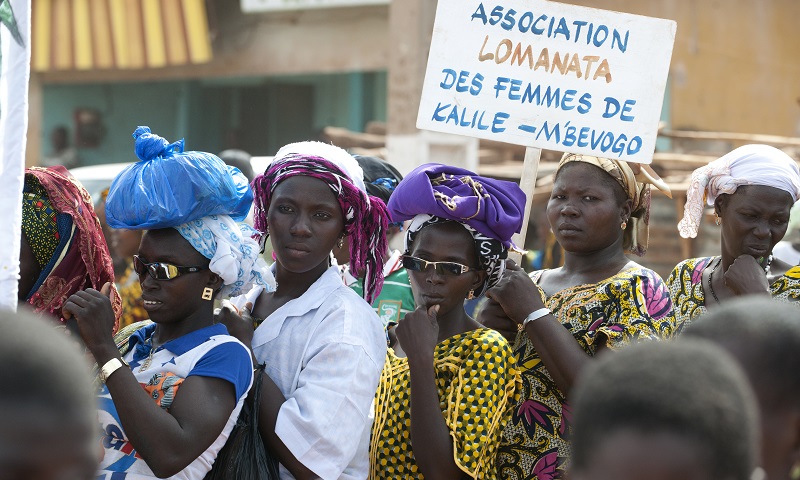
United Nations Convened Expert Group Meeting and Workshop on Cooperatives
The United Nations Expert Group Meeting (EGM) and Capacity-building Workshop on “The Role of Cooperatives in Sustainable Development: Contributions, Challenges and Strategies” was held on 8–10 December, 2014 at the United Nations Office in Nairobi, Kenya. It was an initiative of the Division for Social Policy and Development in the United Nations Department of Economic and Social Affairs.
Over 40 participants attended the meeting and participated fully in the discussions, which was an opportunity for the exchange of ideas on how cooperatives are helping to build sustainable societies, and it was an occasion for capacity-building of cooperative leaders in Africa.
The event consisted of 4 global sessions and 3 workshops with a focus on Africa. The themes of the sessions were: The United Nations Global Cooperative Census; Appraisal of the achievements of cooperatives in social development; Assessing the contributions of cooperatives to economic development; and Cooperatives and environmental development: Successes and Challenges.
The themes of the workshop were: Cooperatives and financial inclusion in Africa; Role of cooperatives in agricultural development and food security in Africa; and Policies and strategies for youth participation in cooperatives in Africa
This meeting came at a time when the UN is about to adopt the post 2015 development agenda and Sustainable Development Goals. Cooperatives have been making their contributions known in the process leading up to these goals. During the implementation phase starting after their adoption in 2015 onwards, cooperatives will continue, even more, to make their contributions to reaching these goals in a practical and concrete manner.
The meeting provided expert analysis on the role and potential of cooperatives in achieving social, economic, and environmental development. The participants in the EGM and Workshop addressed several questions:
- What are the contributions that cooperatives in Africa have been making to sustainable development?
- What are the challenges that confront cooperatives and governments in the context of sustainable development for all?
- What are the strategies for allowing cooperatives to grow and develop and make more and better contributions to sustainable development for all?
- What kinds of capacity-building opportunities are required for cooperative leaders and trainers in Africa?
The documentation of the meeting comprised papers relevant to the topics of the sessions. The papers available on the website of DSPD. Visit http://undesadspd.org/Cooperatives for more information.
Conclusions of the EGM and Workshop
- Persons who started the early cooperatives were young people, so the youth is fundamental to cooperatives. However, participants stressed that there is a need to engage youth to take over from current leaders in the cooperative movement when they retire. There is a big gap between what coops do and what youth need to participate in cooperatives. The work of cooperatives should be synchronized with youth perception, and cooperatives need better branding to fit youth preferences. The challenge is how cooperatives deliver what young people need. It is important to provide internships for youth in coops. Youth should be prepared to run cooperatives themselves. Good practices in youth participation in cooperatives and in having youth play key roles in coops need to be highlighted. Also youth must be included in decision-making of cooperatives so that young people can see youthful faces in the cooperatives when deciding to join. It is important to note that ICA has passed a decision to have youth represented on its board. It was also stressed that the education curriculum from primary to university should reflect the history, nature and global contributions of cooperatives.
- Cooperatives cannot be influential without statistics. A structured way of collecting statistics will help in building support for the cooperative sector. The infrastructure is already in place in organizations such as the International Cooperative Alliance, including its regional organizations; and the United Nations.
- More attention must be paid to the links between cooperatives and social development, especially social inclusion, employment creation, poverty eradication, peace-building,
- Networking among cooperatives within Africa, and between and among different regions of the world is critical for promoting the growth, development and contributions of cooperatives.
- Cooperatives to strengthen the financial cooperatives so that they assist more in building up other cooperatives in the. In this connection, there is a need to share experience in this area, and training in financial management is a necessary for members of cooperatives.
- Efforts should be made to bring together cooperative colleges, universities and institutes from around the world to see how they can play a greater role in promoting the development of cooperatives.
- The United Nations should do more work on cooperatives in Africa and more events are needed to bring cooperatives together in Africa to address common challenges.
 Welcome to the United Nations
Welcome to the United Nations